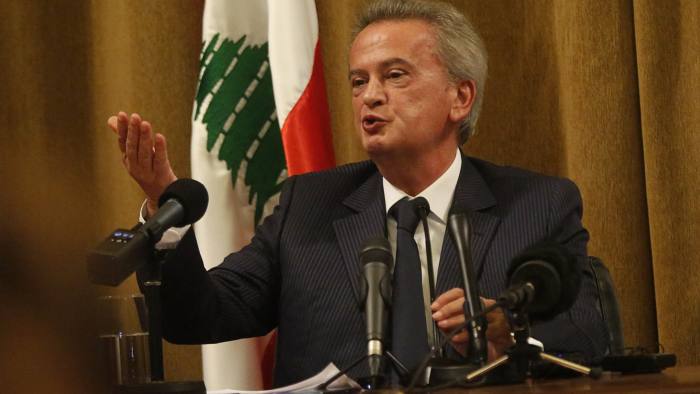The Governor of the Banque du Liban, Riad Salameh, announced that “the central bank wants banks to increase their capital by the end of February 2021, otherwise they will have to exit the market.”

He clarified that exiting the market means the banks will have to allocate its shares to the central bank along with the deposits and there won’t be any bankruptcies.
The central bank did not spell out what incentives could be given to banks to comply with its demands is paralysed by the worst financial crisis in Lebanon’s history.
Salameh clarified in an interview with an international agency that ” he cannot say for how long the Central Bank of Lebanon will continue to be able to support the basic imports,” stressing that “the central bank has two goals, which are to create liquidity for Lebanese banks with t correspondent banks and recapitalize it.”
He declared that “Banque du Liban’s foreign exchange reserves are $ 19.5 billion, and the mandatory reserve is $ 17.5 billion. Lebanon is not in the process ocf” floating its currency. “
Earlier today Salameh said banks should also urge depositors who had transferred more than $500,000 abroad as of July 1, 2017, to deposit funds in a special account in Lebanon that will be frozen for five years and equivalent to 15% of the transferred amount in order to boost liquidity.
Domestic banks have frozen savers out of their dollar deposits and largely blocked transfers abroad since late last year due to the economic and financial crisis, which culminated in Lebanon defaulting on its huge foreign currency debt in March, and has ravaged the currency.
Lebanon’s banks hold the bulk of the sovereign debt and successive governments have used the banking system to finance the state, which is struggling with an acute dollar shortage.
“We do not know how the negotiations between Lebanon and the creditors will end up but we have taken the normal provision that follows such a default,” Salameh told Reuters.
A financial rescue plan for Lebanon forged by the now-caretaker government floundered amid differences between the outgoing administration, the banking sector and politicians over the size of vast financial losses. The internal row also stalled talks with the International Monetary Fund for a bailout.

Leave a Reply
You must be logged in to post a comment.